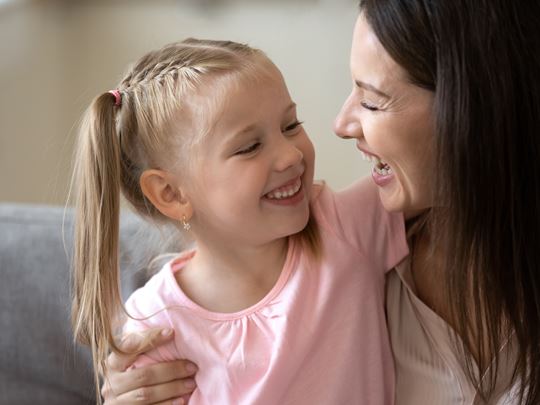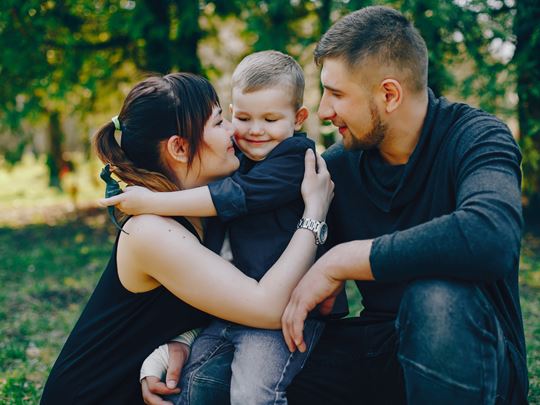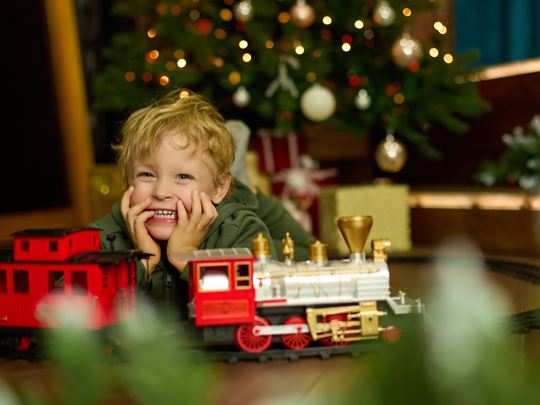
Christmas is a truly magical time of year. But Christmas for children in care can also bring challenges and mixed emotions.
Whether this is their first Christmas away from their birth family or they’ve been in care for a number of years, the holiday season can present unique challenges. Knowing how to support your child at Christmas can make all the difference.
In this article, we’ll look at ways to support the child in your care at Christmas, so you can all enjoy the magic of the season together.
Christmas for children in care
The festive season can be a time of joy, love, celebrations, and family gatherings. However, for children in care, Christmas can also bring a mix of different feelings, as they navigate the complexities of being away from their birth families and adjusting to new environments.
As a foster parent, it's vital to create a supportive and understanding atmosphere, so your child feels safe, secure, and included.
While the build-up to Christmas can be full of activities, outings, and expectations, it’s important to be mindful of your child’s mental health at Christmas. Here are some specific questions you can ask the child in your care:
- What are your favourite Christmas traditions?
- Are there any Christmas traditions that you would like to do with our family?
- Are there any Christmas traditions that you don't want to do with our family?
- What are your expectations for Christmas gifts?
- How can we help you to have a happy and positive Christmas?
It’s not unusual for children in care to feel a heightened sense of loss or displacement during Christmas. Offer comfort and understanding, reassuring them that they are not alone. Be patient and ready to listen if they want to talk about their feelings or share memories from previous Christmases.
If they are missing their birth family, encourage them to share memories or traditions they enjoyed with them. This can be an opportunity to create new traditions together while honouring their past.
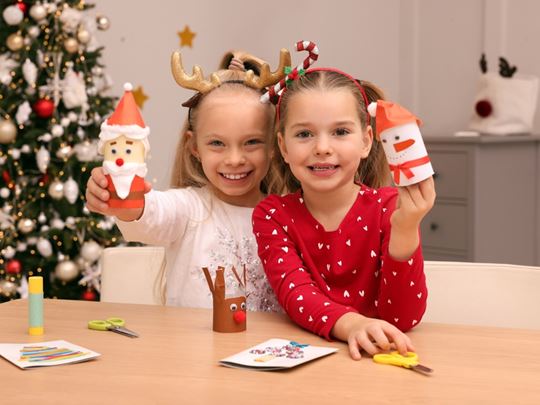
Fostering with children
If you are fostering with children, you might already have your own family traditions that are important to your own children. While you don’t necessarily need to change these, it’s important to be mindful of the child in your care, and whether these traditions will make them feel excluded from the family.
Speak with your own children and talk about ways you can adapt the things that are special to them so their foster sibling can be included in the fun. You could even come up with some new Christmas traditions together, so they feel part of the festive plans.
Tips for supporting the child in your care at Christmas
Whether you are long-term fostering or caring for a child for a few weeks over the festive season, there are lots of ways you can support them at Christmas. Let’s explore a few of them now.
1. Involve them in the preparations
Engage your child in exciting Christmas preparations to make them feel included, valued, and part of the family. Whether it's baking cookies, wrapping presents, choosing the Christmas tree or decorating the house, involving them in these activities can foster a sense of belonging and connection to the season and the family.
2. Start new Christmas traditions as a family
Do you have special family traditions at Christmas? Maybe it’s going out as a family and choosing a tree, having a Christmas film night, or even a special place you visit every Christmas. Christmas traditions are a lovely way to create memories with your family, but if you have a child in your care who is staying with you this Christmas, why not create some new traditions and help create memories you can all cherish?
Christmas traditions for foster families can be as simple or as extravagant as you and your family would like. Speak to the child in your care about what they enjoy about this time of year and ask them if there is anything special they like doing. Involving the child in your care in the decision making process can help them feel included and a real part of your family.
3. Thoughtful gifts for your foster child
Opening presents is one of the most exciting parts of Christmas - for children and adults. Giving the child in your care Christmas gifts from the heart doesn’t mean they have to be extravagant or expensive.
Ask your child to write a list for Santa (if they believe in the jolly old elf) of things they have always wanted for Christmas. If you have a tight budget (and to avoid disappointment), remind them that Santa can’t always bring every gift on the list, but he’ll always do his best.
If the child in your care doesn’t know what they want for Christmas, use your knowledge of them to choose gifts you think they may like. Cosy PJs, fleece blankets, cuddly toys, dolls, games, fun backpacks and water bottles, and portable gaming systems all make great options.
Remember, you’re already giving the child in your care the most special gift of all; a safe, loving, and stable home for Christmas.
4. Have open communication
It’s important to be mindful for the child in your care’s mental health at Christmas, just like at any other time of the year. Being gentle and open and actively listening to to their feelings can help them feel more secure.
If they’re feeling unsure about spending Christmas with a foster family, let them know that it’s perfectly okay to have different expectations for Christmas. It’s okay for them to feel excited but it’s also totally normal to be feeling sad or anxious too. All their feelings are valid, and you’ll be by their side, helping them navigate these difficult emotions.
5. Help them stay connected
Many children in care will miss their birth family, especially at Christmas. As a foster parent, you should help them stay connected to their birth family at Christmas, where appropriate and possible.
Some ways you could do this include:
- Arrange a visit and/or video calls
- Send Christmas cards
- Let them choose gifts for their birth family
- Decorate your home with photos of their family
- Cook traditional meals they enjoyed together
- Watch films they used to watch together
You should also talk to them about their feelings. Let them know that it's okay to be sad or angry about missing their birth family and reassure them that you are there for them.
6. Give them space if they need it
Christmas can be an overwhelming experience for children in care. With all the activities, gatherings, noise, and guests, it’s possible that your child might need some space or time alone.
If this happens, be understanding and empathetic, and try to be mindful of how they might be feeling. If they seem withdrawn or upset, let them know it’s absolutely fine for them to go to their room for some alone time. Just assure them that you are all there for them if they need you.
7. Be mindful of triggers
Christmas decorations, songs, or family traditions may unintentionally trigger memories or emotions tied to your child's past. Be aware of potential triggers and approach the festive season with sensitivity and empathy. You can always discuss any concerns with your social worker to ensure a supportive and collective approach.
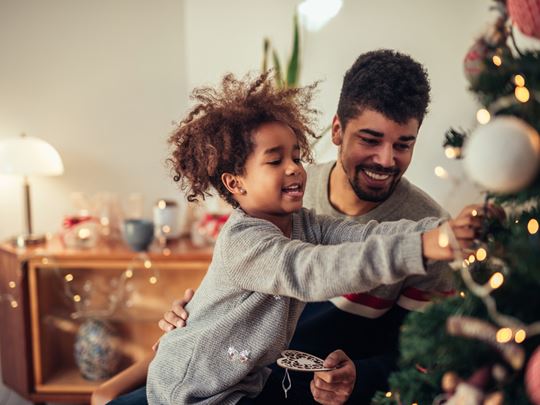
Helping the child in your care at Christmas together
Christmas can be a difficult time for children in care, especially if they have experienced previous trauma or loss. While supporting your child is crucial, it’s also important to be mindful of your own feelings. It can be difficult seeing them struggle, but remember, you are never alone.
One of the benefits of fostering with Orange Grove is that we are there to guide and support you every step of the way. Our team not only provide exceptional support for children in care, but for the wonderful families taking care of our children too. We’re here for you 24/7, even over the festive period, to ensure you and your whole family have the most magical Christmas possible.


